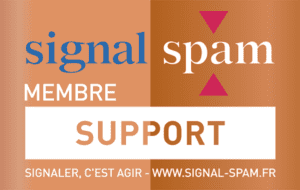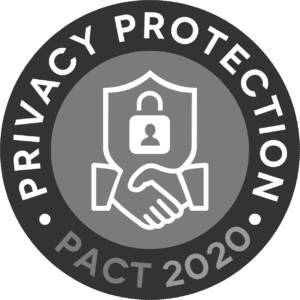The effectiveness of an emailing campaign is measured not just by the number of messages sent, but by the quality of the interactions generated. A poorly managed database can turn your best marketing tool into a legal and commercial nightmare. Between strict regulations, risks of sanctions and loss of customer confidence, managing your emailing database requires a methodical and respectful approach. 🎯
Understanding the risks: what is spam and why avoid it?
To manage your emailing base properly, you first need to understand what not to do. Spam, in the context of email marketing, refers to unsolicited messages, often of a commercial nature, sent en masse to a multitude of recipients. These messages are generally perceived as intrusive and unwanted by users.
The impact of spam on companies and users is far from negligible. For companies, sending spam can seriously damage their reputation. Recipients of these unwanted messages often develop a negative perception of the sending company, which can lead to a loss of trust and, consequently, a loss of customers. 📉
What’s more, spam can result in legitimate company messages being placed in recipients’ spam folders, reducing the reach and effectiveness of email marketing campaigns.
The consequences of spam for your business
- Damage to brand reputation
- Lower deliverability rate
- Legal penalties and fines
- Loss of customer confidence
- Blocking by ISPs
Understanding the nature of spam and its impact is essential for marketing professionals. This underlines the importance of adopting responsible emailing practices, in line with regulations such as the RGPD.
Legal fundamentals: managing permissions under the RGPD
Now that we’ve identified the risks of spam, let’s look at the solutions. Permission management is the cornerstone of a successful, compliant emailing strategy.
Respect confidentiality and regulations 🔐
Respecting privacy and regulations isn’t an option, it’s a necessity! 🌍 Understanding and correctly applying legislation, such as the General Data Protection Regulation (GDPR) in Europe, is essential to building trust and maintaining the legitimacy of your brand.
1. Legal knowledge
It’s crucial to familiarize yourself with the relevant laws in the regions where your subscribers reside. The RGPD, for example, imposes strict rules on the consent, collection, storage and processing of EU citizens’ personal data. 📚
2. Clear and explicit consent
Make sure your subscribers have explicitly agreed to receive your emails. This means:
- No pre-checked boxes or implied consent
- Transparent, explicit consent through positive action
- Clear information on data use
3. Right to be forgotten
Users need to be able to easily unsubscribe and request the deletion of their data. Making this process simple and accessible builds trust. 🚫
4. Data protection
Invest in data security to protect your subscribers’ personal information from breaches. Measures such as encryption and regular audits are fundamental. 🔒
5. Training and updates
Keep abreast of legislative changes and train your team regularly on these aspects. Compliance is an ongoing process, not a fixed destination. 📈
The CNIL’s position on commercial prospecting by email
The French Data Protection Authority (Commission Nationale de l’Informatique et des Libertés – CNIL) has established clear rules for commercial prospecting by e-mail, distinguishing between BtoB and BtoC practices.
BtoC prospecting: mandatory consent
The CNIL draws a clear distinction between canvassing aimed at private individuals and canvassing aimed at professionals. For private individuals, the rules are strict.
Advertising by e-mail is possible, provided that people have given their explicit consent before being canvassed.
For private individuals, the CNIL requires :
- Explicit prior consent
- Clear information at the time of collection
- A positive action by the person (checkbox not pre-ticked)
Exceptions to prior consent
The CNIL makes two important exceptions:
- Existing customer: If the prospect is already a customer of the company and if the prospecting concerns similar products or services provided by the same company.
- Non-commercial canvassing: If the canvassing is not of a commercial nature (e.g. charitable).
BtoB prospecting: legitimate interest
While the rules are strict for private individuals, the CNIL takes a more flexible approach to commercial prospecting between professionals.
Prospecting towards professionals may be based on the organization’s legitimate interests.
For professionals, the rules are more flexible:
- Mandatory prior information
- Simple, free right of objection
- Object related to the recipient’s profession
Generic business addresses
Generic business addresses such as info@nomsociete.fr, contact@nomsociete.fr or commande@nomsociete.fr are corporate addresses. They are not subject to the above principles.
Obligations common to all prospecting
Whatever the nature of your prospecting (BtoB or BtoC), certain obligations apply to all commercial emails.
Whether BtoB or BtoC, every electronic message must :
- Identify the advertiser
- Provide an easy way to unsubscribe (unsubscribe link)
- Respect the choice to unsubscribe immediately
The RGPD, an asset for your emailing strategy
Far from being a constraint, RGPD compliance can become a real competitive advantage for your company.
The RGPD is fully in force and compliance is not simply a legal obligation, but a key element in building a relationship of trust with your contacts. By adhering to the standards set by the CNIL, companies demonstrate their commitment to data protection and privacy.
This approach is essential for :
- Maintaining your company’s reputation
- Ensuring the sustainability of your marketing strategies
- Create a lasting relationship of trust with your customers
- Optimize the performance of your campaigns
Remember: ethical, respectful marketing is always winning marketing! A well-managed, RGPD-compliant and user-friendly emailing base will always perform better than one put together in a rough way. 🚀🌟
The key to success lies in balancing commercial efficiency with regulatory compliance. By following these recommendations, you can build a sustainable, high-performance emailing strategy that protects both your company and your recipients.










